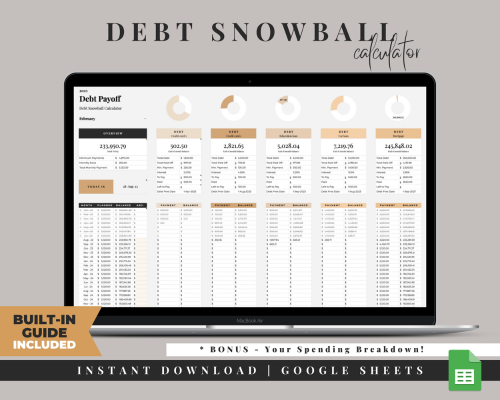- Set Clear Financial Goals:
- Before you start budgeting, identify your financial goals. These could include saving for a vacation, paying off debt, or building an emergency fund. Knowing your goals will help you allocate your resources effectively.
- Determine Your Income:
- Calculate your total weekly income. This may include your salary, freelance income, rental income, and any other sources of money.
- List Your Expenses:
- Make a comprehensive list of all your weekly expenses. Categorize them into fixed (e.g., rent/mortgage, utilities, loan payments) and variable (e.g., groceries, entertainment, dining out) expenses.
- Prioritize Your Expenses:
- Determine which expenses are essential and which are discretionary. Essential expenses should be prioritized in your budget.
- Set Spending Limits:
- Allocate specific amounts to each spending category based on your income and financial goals. Be realistic about your spending limits to avoid overspending.
- Track Your Spending:
- Keep track of every expense throughout the week. You can use apps, spreadsheets, or pen and paper to record your spending.
- Review and Adjust:
- At the end of each week, review your actual spending against your budget. Adjust your budget if necessary to account for any unexpected expenses or changes in income.
- Create a Savings Category:
- Allocate a portion of your income to savings. This could include an emergency fund, retirement savings, or other long-term financial goals.
- Emergency Fund:
- Consider creating an emergency fund category in your budget. This can help you set aside money for unexpected expenses, such as medical bills or car repairs.
- Use Envelopes or Digital Tools:
- Some people find it helpful to use the envelope budgeting system where you allocate cash to envelopes for different spending categories. Others prefer digital budgeting tools and apps, like Mint or YNAB, to track and manage their finances.
- Automate Payments:
- Set up automatic payments for bills and savings contributions to ensure you never miss a due date or skip a savings deposit.
- Be Flexible:
- Life can be unpredictable. It's okay to adjust your budget as needed, especially if your income or expenses change. The key is to stay mindful of your financial goals.
- Avoid Impulse Purchases:
- Stick to your budget and avoid impulse purchases. If you come across an item you want but didn't plan for, give yourself time to think about it before buying.
- Regularly Review and Reflect:
- Periodically review your overall financial situation and make adjustments as your goals evolve or your circumstances change.
- Seek Professional Advice:
- If you have complex financial goals, consider consulting with a financial advisor who can provide personalized guidance and help you create a budget that aligns with your objectives.
Creating a weekly budget planner takes time and discipline, but it can help you achieve your financial goals and maintain financial stability. Remember that budgeting is a tool to empower you to make informed financial decisions and should adapt to your needs and circumstances.
For more info:-
Visit our Social media sites:-
https://www.pinterest.com.au/lena_zaitceva/budget-planner/
https://www.facebook.com/thrivingkoala
Source Url:- https://sites.google.com/view/thrivingkoalas/home





Comments